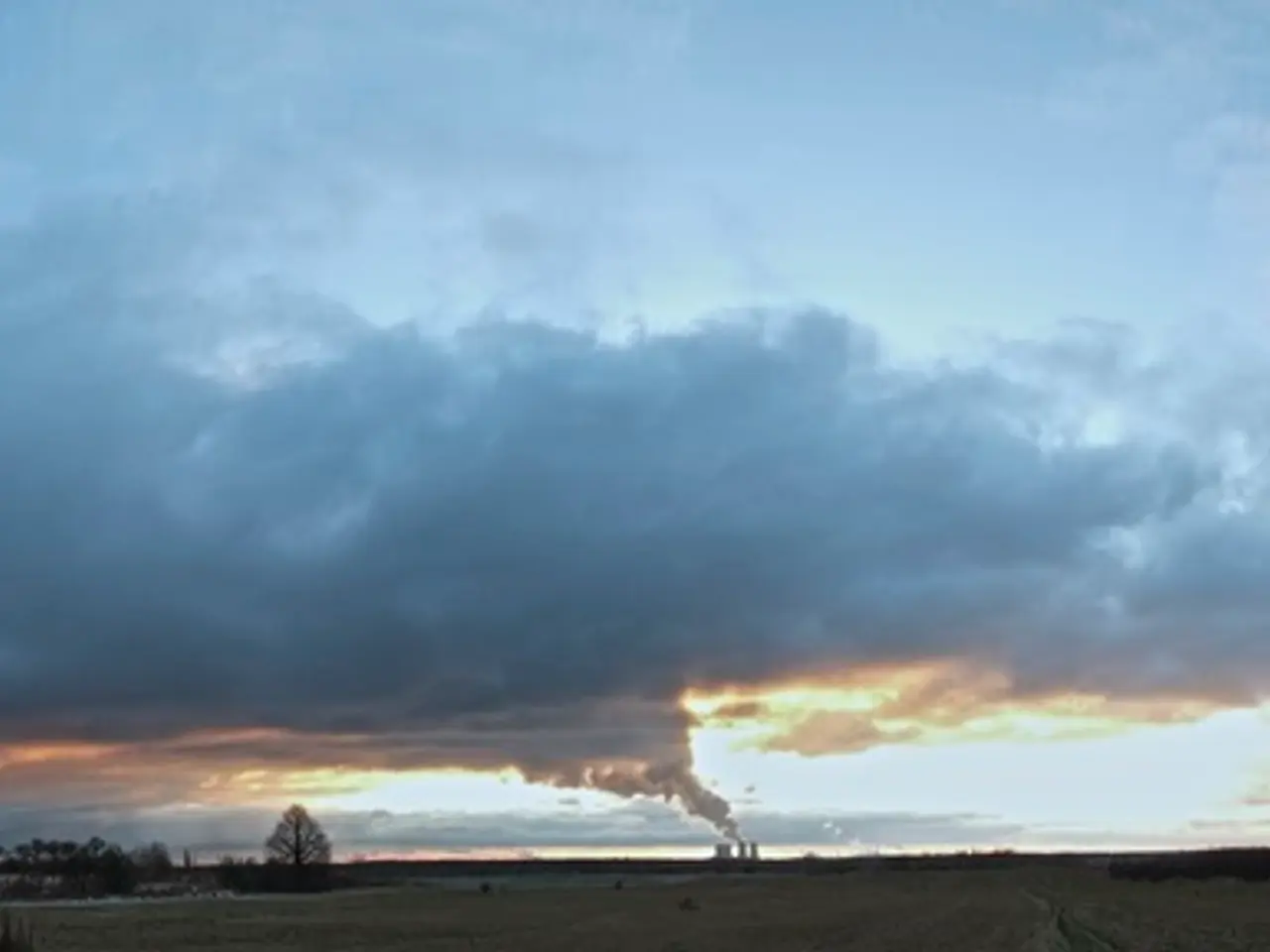Rise in Amazon's Emissions Occurred in 2024 Due to the Booming Operations of Energy-Guzzling Data Centers
Leading tech companies, including Amazon, Google, Meta (Facebook), and Microsoft, are actively working to reduce carbon emissions from their data centers and improve energy efficiency, as the demand for AI and digital services continues to grow. Here's a look at the key strategies each company is employing to achieve their sustainability goals.
Amazon, with a net-zero carbon target by 2040, is investing heavily in renewable energy, circularity (reusing materials/resources), and water stewardship across its infrastructure. Despite a 6% rise in emissions in 2024, primarily due to data center expansions and AI workload increases, Amazon improved its emissions intensity (carbon per dollar of sales) from 75.6g CO₂e to 72.6g CO₂e. The company is also directing significant capital into building new data centers, with plans to integrate cleaner energy sources, including partnerships and expansion of nuclear energy capacity. To reduce logistics emissions, Amazon expanded its electric vehicle fleet from 19,000 to 31,000 in 2024, targeting 100,000 electric delivery vans by 2030.
Google is focused on achieving carbon-free energy for all its data centers and campuses by 2030. The company extensively uses AI and machine learning to optimize data center cooling and energy use, reportedly cutting energy use by up to 30% through AI-driven efficiency. Google also buys large amounts of renewable electricity and invests in on-site renewable energy generation. The company promotes circular economy principles and water conservation to lower operational environmental impacts.
Meta (Facebook) has pledged to reach net zero emissions across its value chain by 2030. The company invests in renewable energy procurement to power its data centers fully with clean energy. Meta employs advanced cooling technologies, including liquid cooling and building data centers in cooler climates to reduce cooling energy needs. The company also leverages AI to improve data center operational efficiency.
Microsoft aims to be carbon negative by 2030, meaning it plans to remove more carbon from the environment than it emits. The company heavily invests in renewable energy projects and purchases high volumes of clean power. It aims to power all its data centers with 100% renewable energy by 2025 and uses advanced AI to optimize cooling and workload energy efficiency. Microsoft is also pioneering the use of modular nuclear reactors and other clean technology partnerships to support data center energy needs sustainably.
In summary, these tech giants are scaling investments in renewable energy and clean power supply, deploying AI and machine learning to optimize data center operations and reduce energy use, innovating in cooling technologies to reduce electrical loads, expanding electrification of logistics and infrastructure, and exploring advanced clean energy solutions like modular nuclear reactors.
These efforts come as the ICT industry's emissions are projected to significantly increase by 2040, with data centers and communication networks expected to represent the largest share of emissions from the ICT industry. The companies have signed deals to access carbon-free nuclear power for their data centers and are sourcing electricity from cleaner, renewable sources as part of their efforts to cut emissions.
The funding for this news article comes from readers' donations, supporting the non-profit newsroom's operations, expansion, and editorial independence.
[1] [Amazon's Sustainability Report 2020](https://sustainability.amazon.com/reports/2020) [2] [Google's 2020 Environmental Report](https://www.google.com/green/reports/) [3] [Meta's 2020 Environmental Sustainability Report](https://about.fb.com/wp-content/uploads/2020/11/Meta-Environmental-Sustainability-Report-2020.pdf) [4] [Microsoft's 2020 Environmental Sustainability Report](https://www.microsoft.com/en-us/sustainability/what-we-do/environmental-sustainability-report/)
- Amazon's net-zero carbon target by 2040 is being met through substantial investments in renewable energy, circularity, and water stewardship, despite a 6% rise in emissions in 2024.
- Google aims to achieve carbon-free energy for all its data centers and campuses by 2030, using AI and machine learning to optimize energy use and lower the operational environmental impact.
- Meta (Facebook) plans to reach net zero emissions across its value chain by 2030, investing in renewable energy procurement and employing advanced cooling technologies to reduce cooling energy needs.
- Microsoft aims to be carbon negative by 2030, and is heavily investing in renewable energy projects, advanced AI, and clean energy solutions like modular nuclear reactors to achieve this goal.
- As the ICT industry's emissions are projected to increase significantly by 2040, tech giants such as Amazon, Google, Meta, and Microsoft are signing deals to access carbon-free nuclear power and sourcing electricity from cleaner, renewable sources.




